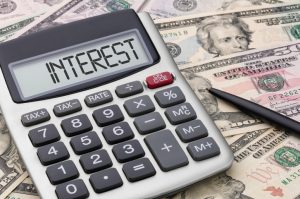How Will the Fed’s Rate Hike Affect You?
How Will the Fed’s Rate Hike Affect You?
 From the financial crisis of 2008, and over the course of the Great Recession, interest rates remained historically low. Then, we all waited in anticipation as the Fed discussed raising rates in response to an improving economy. Finally, a rate hike was issued in December 2015, and then again just last month. Of course we’re happy to see this sign of a stronger economy, but many of you are wondering exactly what it means.
From the financial crisis of 2008, and over the course of the Great Recession, interest rates remained historically low. Then, we all waited in anticipation as the Fed discussed raising rates in response to an improving economy. Finally, a rate hike was issued in December 2015, and then again just last month. Of course we’re happy to see this sign of a stronger economy, but many of you are wondering exactly what it means.
Why does the Fed raise and lower rates in the first place? The full explanation is much too long for a simple blog, and in fact, many people devote entire academic careers to studying these issues! But the short answer is that the Fed adjusts interest rates to control inflation and support the overall economy. When the economy slows, they lower rates. When it begins to grow again, raising interest rates can prevent inflation from getting out of control.
The bottom line is that the Fed aims to keep the inflation rate at about 2 percent. This allows for steady, manageable economic growth.
How do rising rates affect the individual? Now that you understand the basic reasoning behind raising rates for the sake of the overall economy, you might be wondering how this rate hike could affect you personally. The truth is, rising rates can both benefit and present some challenges for the individual.
Those with money in the bank (think, investment funds) can often expect their money to grow slightly faster during times of higher interest rates. This is assuming, of course, that you’ve placed your money in beneficial assets. There are also some funds which begin to decline in value when rates rise, so it would be wise to meet with us and discuss ways to rebalance your portfolio to reflect the changing economic climate.
With rates expected to rise again this year, depending upon growth, that could be bad news for those of you who were thinking of borrowing money. You’ll be paying higher interest rates on loans such as home equity lines, credit cards, and perhaps even on cars and mortgages. So now is a good time to evaluate any debt that you might have and look carefully before committing to any form of financing. Make sure you read the fine print and ask plenty of questions. You don’t want to be in a situation where interest and payments increase on items you have financed. Of course, this advice might not apply to every individual, since there are other circumstances which can affect your specific situation.
If you’re concerned about rising rates or have questions, give us a call. We can help you anticipate the ways in which these changes might affect you, and make adjustments to your financial strategy as needed.